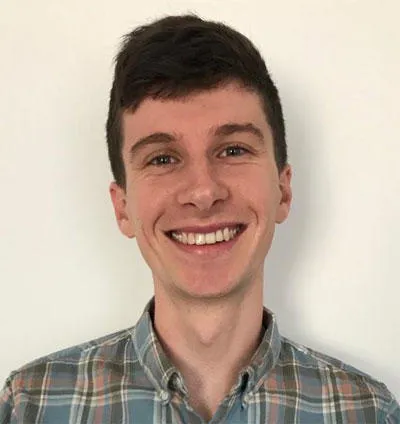I am excited to take academic research a step further and work on translating medical imaging technologies into useful tools to help both patients and clinicians.
Dr Conor Horgan
17 February 2021
School of Biomedical Engineering & Imaging Sciences spinout announces Innovate UK support
The spinout Hypervision Surgical has recruited a postdoctoral scientist to develop machine learning algorithms for the hyperspectral imaging camera


The King’s College London spin-out Hypervision Surgical led by scientists at the School of Biomedical Engineering & Imaging Sciences announces an Innovate UK grant for recruitment of a postdoctoral scientist to further develop technology to provide surgeons with critical real-time tissue information during surgery.
Dr Conor Horgan, who previously worked as a postdoctoral research associate in the Label-Free Bioimaging Laboratory at King’s College London, has been awarded an Innovate UK Scholarship to complete a 3-year secondment with Hypervision Surgical.
Dr Horgan previously worked on the development of prototype medical technologies for cancer surgery and sought an opportunity to work on commercial development while still being closely linked to King’s.
Hypervision Surgical oversees the development of an interventional hyperspectral imaging system that seamlessly integrates into the surgical workflow to provide real-time tissue information during surgery currently invisible to the human eye.
Using safe light and Artificial Intelligence, their system will distinguish between tissues, such as cancerous and non-cancerous tissue, in addition to providing quantitative information for blood perfusion and tissue oxygenation.
Dr Horgan said this information is currently unavailable to surgeons and its incorporation will guide surgeons during surgical procedures while monitoring vital physiological tissue properties. This will increase surgical precision and patient safety without injecting any contrast agents.
As hyperspectral imaging data is very complex and requires advanced computer-processing for its interpretation, Dr Horgan will build on his background in computational oncology and biophotonics to develop bespoke machine learning algorithms for hyperspectral imaging data to distinguish between cancerous and non-cancerous or other kinds of pathologies for tissues.
The algorithms will transform this data in real-time into useful and interpretable visual information to guide surgical intervention.
By creating porosity in between academia and industry we can maximise the impact of King’s College London research for the patient and public benefit. We are delighted that Dr Horgan joins our team with the support of Innovate UK to accelerate the development of this technology that has so much potential to improve surgical care.
Dr Michael Ebner, CEO of Hypervision Surgical
